Diarrhea in Horses
Updated on 04/26/24
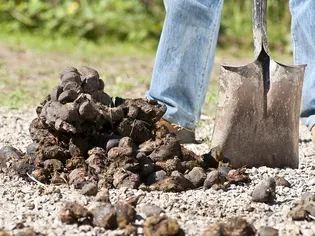
Diarrhea in Horses: A Comprehensive Guide to Causes, Symptoms, and Treatment
Diarrhea, characterized by loose or liquid stools, is a common health concern in horses. It can range in severity and duration and can indicate underlying health issues or be a symptom of an acute condition. This extensive guide will provide a comprehensive understanding of diarrhea in horses, covering causes, symptoms, treatment, and preventive measures.
Causes of Diarrhea in Horses
Numerous factors can contribute to diarrhea in horses, including:
* Infectious Agents: Bacteria, viruses, and parasites can cause gastrointestinal infections leading to diarrhea. Common pathogens include Salmonella, Clostridium perfringens, and rotavirus.
* Dietary Changes: Sudden changes in diet or feed quality can disrupt the digestive system, causing diarrhea. This is especially true for horses that are not properly adapted to new feeds or have sensitivities to certain ingredients.
* Medications: Certain medications, particularly antibiotics, can have side effects that include diarrhea as horses' digestive systems struggle to adjust to the medication.
* Stress: Stressful events, such as transportation, show competitions, or changes in the environment, can release hormones that affect the digestive system's function.
* Parasites: Internal parasites, such as roundworms and strongyles, can cause intestinal inflammation and damage, leading to diarrhea.
* Intestinal Disorders: Underlying intestinal diseases, such as inflammatory bowel disease or colitis, can result in chronic or recurring diarrhea.
* Metabolic Disorders: Electrolyte imbalances or hormone irregularities can disrupt the digestive system's ability to absorb nutrients, causing diarrhea.
Symptoms of Diarrhea in Horses
Diarrhea in horses can manifest in various ways, including:
* Loose or Liquid Manure: The most obvious sign is loose, watery stools that may vary in color and consistency.
* Increased Frequency: Horses with diarrhea defecate more frequently than usual, often with smaller amounts.
* Abdominal Pain: Horses may exhibit signs of discomfort or colic, such as pawing at their abdomen or lying down in a stretched-out position.
* Loss of Appetite: Reduced appetite or complete refusal to eat can accompany diarrhea.
* Dehydration: Persistent diarrhea can lead to dehydration, evident by dry mouth, sunken eyes, or decreased skin elasticity.
* Lethargy: Diarrhea can cause weakness and fatigue, making horses less responsive and active.
Treatment of Diarrhea in Horses
Treatment for diarrhea in horses depends on its underlying cause and severity. Common approaches include:
* Isolation: Isolating affected horses from healthy ones prevents the spread of infectious agents.
* Hydration: Providing ample clean water or electrolytes is crucial to prevent dehydration.
* Nutritional Support: If possible, continue to provide small amounts of digestible feed, such as hay or mashes, to maintain the horse's nutritional status.
* Antidiarrheal Medications: In some cases, antidiarrheal medications may be used to reduce the severity and duration of diarrhea.
* Antibiotic or Antiparasitic Treatment: If an infectious agent or parasites are identified as the cause, appropriate antibiotic or antiparasitic treatment will be necessary.
* Further Diagnostics: If diarrhea persists or worsens, further diagnostic tests, such as blood work or fecal analysis, may be required to identify any underlying health conditions.
Prevention of Diarrhea in Horses
Preventive measures can help reduce the risk of diarrhea in horses:
* Regular Deworming: Regular deworming programs help control internal parasites that can cause diarrhea.
* Gradual Dietary Changes: Gradually introduce new feeds or changes to the diet to allow the horse's digestive system to adapt.
* Stress Management: Minimize stressors for horses by providing a stable and predictable environment.
* Clean Water and Feed: Ensure horses have access to clean water and good quality feed at all times.
* Biosecurity Practices: Practice good biosecurity measures, such as isolating new horses and disinfecting shared equipment, to prevent the spread of infectious agents.
Conclusion
Diarrhea in horses can be a complex issue with various causes and symptoms. Prompt diagnosis and treatment are essential to maintain the horse's health and prevent complications. By understanding the underlying causes, recognizing the symptoms, and implementing appropriate preventive measures, horse owners can play a vital role in managing diarrhea effectively and maintaining the well-being of their equine companions. Regular veterinary check-ups and early intervention are crucial for addressing any digestive issues and ensuring the long-term health of horses.
Explore More Pets

Pony Breeds
The Difference Between Horses and Ponies

Horse Diseases & Conditions
What Do I Do If My Horse Colics?
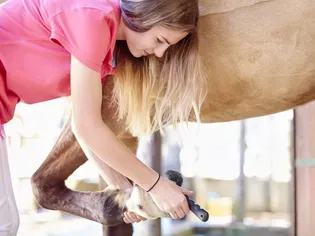
Pony Breeds
Horse and Pony Care by the Day, Week, Month and Year
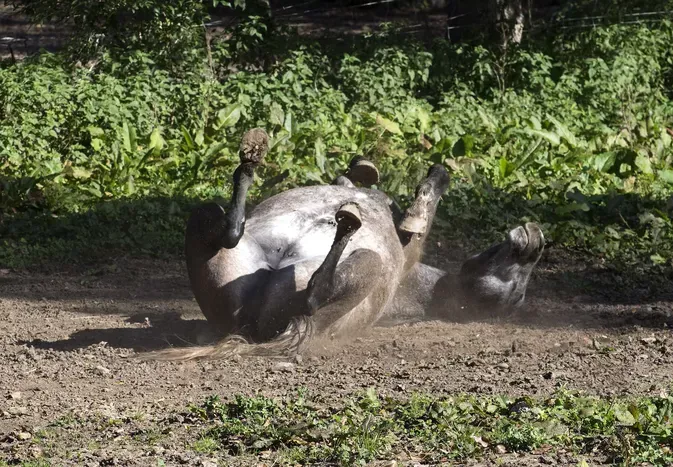
Horse Grooming
Mange in Horses
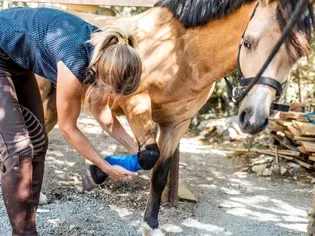
Horse Diseases & Conditions
Grease Heel in Horses

Light Horse Breeds
Gypsy Vanner Horse Breed Profile
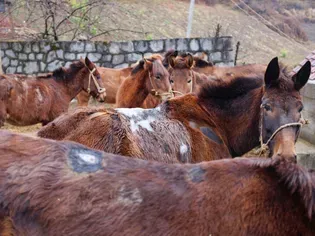
Horse Diseases & Conditions
Girth Galls and Saddle Sores
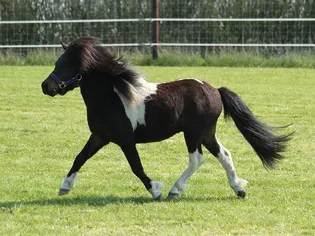
Pony Breeds
Shetland Pony Breed Profile